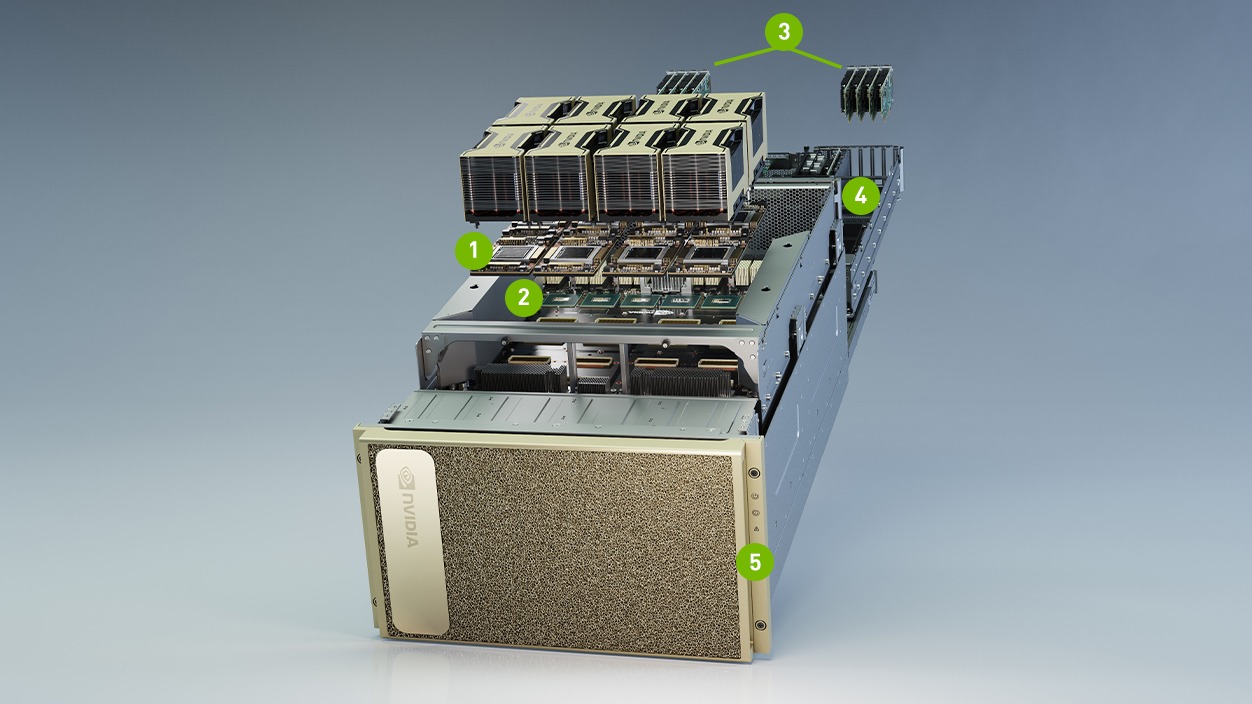On Tuesday, US chip giant Nvidia revealed that the US government has instructed it to immediately halt the export of certain high-end artificial intelligence chips to China, as regulators have expedited the enforcement of new restrictions, which were originally scheduled to take effect from Nov. 16.
Why it matters: The US withdrew Nvidia’s 30-day exemption period for chip exports to China on Oct. 23, implementing the new regulation 24 days earlier than expected. Currently, Chinese customers, such as Tencent and ByteDance, can no longer obtain any AI-related products from Nvidia.
Details: The US government notified Nvidia of the immediate implementation of export restrictions on AI chips starting Oct. 23, as per Nvidia’s announcement to the US Securities and Exchange Commission. The affected products include five GPUs (graphics processing units): A100, A800, H100, H800, and L40S.
- On Oct. 17, the US Department of Commerce announced a series of new restrictions on chip exports, addressing loopholes identified after the US imposed export limitations on chips last October. These new regulations broaden the definition of advanced AI chips and impose additional licensing requirements on chip products destined for over 40 countries and regions, aiming to prevent resale to China. According to the regulations, the new restrictions will take effect from Nov. 16.
- Following the implementation of the new regulations, Nvidia must cease shipping A800 and H800 chips to China unless it has express permission from the US government. A800 and H800 chips are alternative solutions Nvidia offered in place of the originally prohibited A100 and H100 chips, following the initial AI chip export restrictions imposed by the US last October. The Nvidia L40S, an advanced GPU for data centers, will also be affected by the new restrictions.
- Due to the widespread global demand for these products, the sudden acceleration of US restrictions is not expected to have a short-term impact on the company’s financial performance, Nvidia said in its announcement.
- However, Nvidia CEO Jensen Huang earlier stated that the new ban is expected to significantly impact Nvidia’s sales in the Chinese market, though he added that the company remains committed to complying with US regulations.
- Several AI industry professionals in China have voiced concerns and doubts over the new measures, according to a report by local media outlet TMTPost. They worry about the potential impact of the new restrictions on the future training of large-scale AI models in China, which could result in a tech gap compared to US-based AI companies like OpenAI.
Context: In August, Nvidia reported a fourfold increase in its Data Center revenue over the last two years, establishing itself as a leader in AI chips with a market share of over 70%. Nvidia’s stock continues to rise, as the company achieved a market cap of $1 trillion earlier in 2023.
- The data center sector comprises processors such as central processing units (CPUs), data processing units (DPUs), and graphic processing units (GPUs). GPUs are favored for AI applications due to their ability to handle multiple tasks simultaneously.

